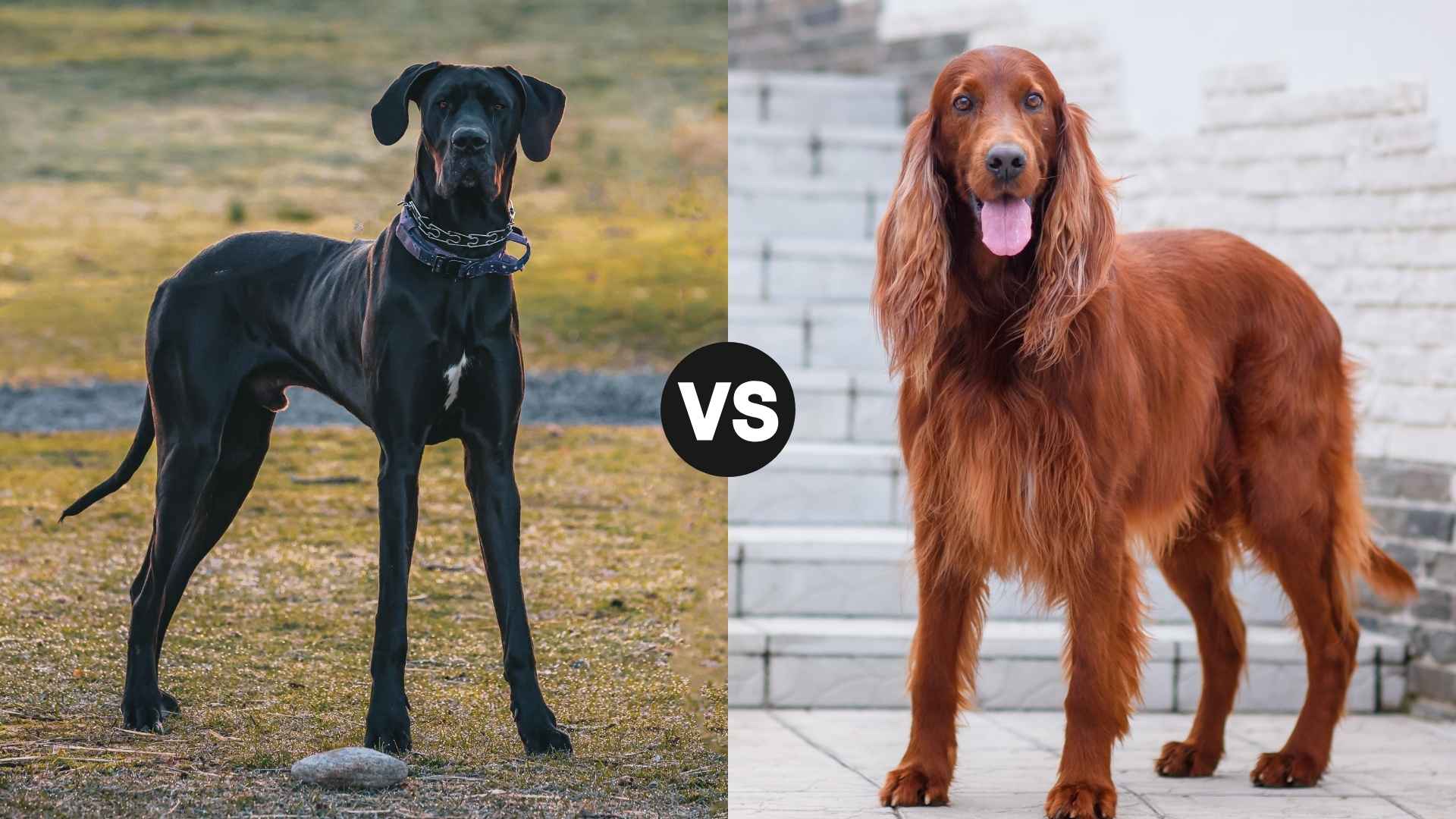The Great Dane, one of the biggest dog breeds in the world. They are tall, muscular, and known as gentle giants. Their soft demeanor and impressive size make them instantly stand out.
On the other hand, Irish Setters steal attention with their amazing red coats. They have been a favorite dog breed among U.S. presidents.
Both are stunning in their own way, but offer vastly different experiences as companions. This guide will help you compare their size, temperament, health issues, and lifestyle needs to make the right choice.
Great Dane vs. Irish Setter
Ever wondered what it’s like living with a dog breed of a big size that never seems to run out of battery? Meet the Great Dane and Irish Setter, a majestic duo with totally opposite vibes. One lounges like it pays the bill, the other parties like it is always Saturday.
Physical Size and Weight Comparison
Imagine a dog so tall it can rest its chin on your dinner table vs a lean athletic that zips through your yard like a laser light.
Size is not just a number. It is a whole lifestyle. Let’s talk height, heft, and home space before you bring one dog breed to your house.
Great Dane
Height: 28 to 34 inches
Weight: 110 to 175 lbs
Body Type: Massive, powerful, with a rectangular body frame
Growth: Rapid growth during puppyhood, prone to joint issues
Ideal for: Owners with large homes, ample space, or fenced yards.
Irish Setter
Height: 24 to 27 inches
Weight: 60 to 70 lbs
Body Type: Lean, athletic, and built for agility
Growth: Steady and proportional
Ideal for: Active households with moderate space
Temperament and Behavioral Traits
Are you ready for a roommate who is a chill therapist or one who is the life of the party? These two dogs have personalities so different that they could star in a comedy movie.
One is a sophisticated friend, while the other is the crazy dude of the group. Let’s decode their doggy vibes and differences in personality.
Great Dane
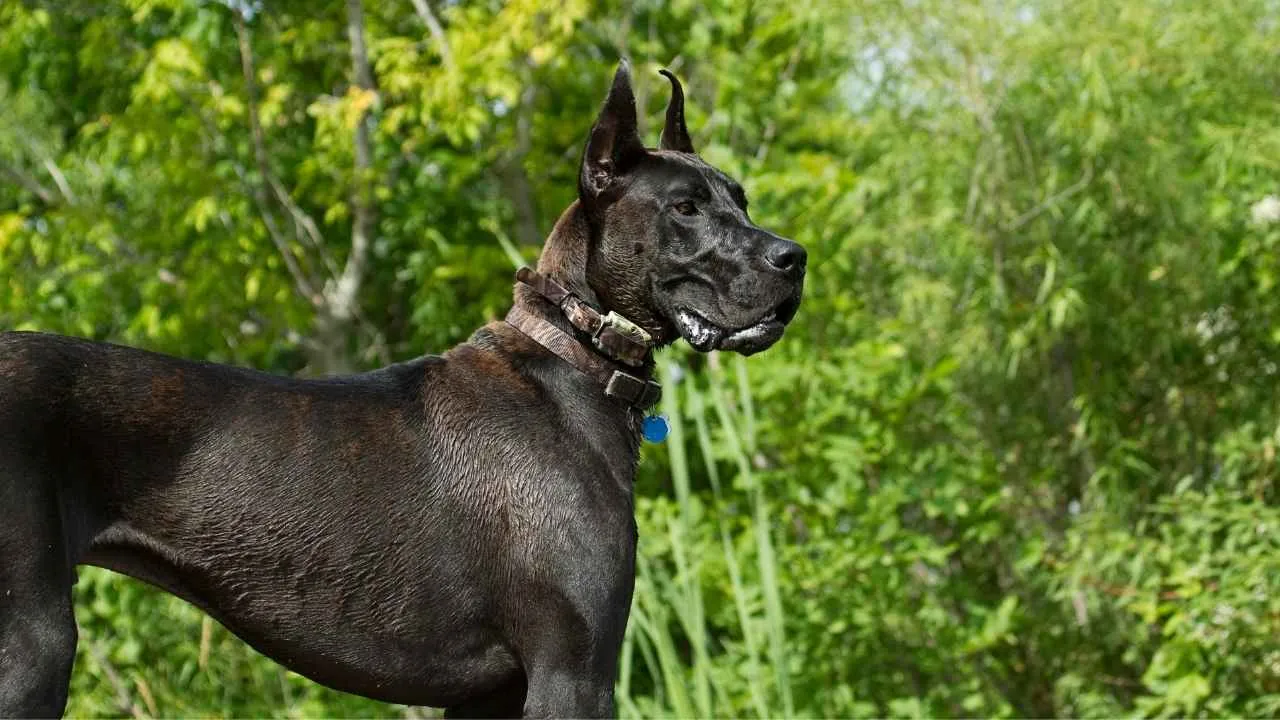
Great Danes are calm, loyal, and often reserved with strangers, as per PetMD.
They are protective, but not aggressive.
Great Danes are great with children, hence called ‘gentle giants’.
Unless in unusual situations, they are not prone to excessive barking.
They can be sensitive and may get emotionally attached to their owners.
Great Danes love calm, quiet homes.
Irish Setter
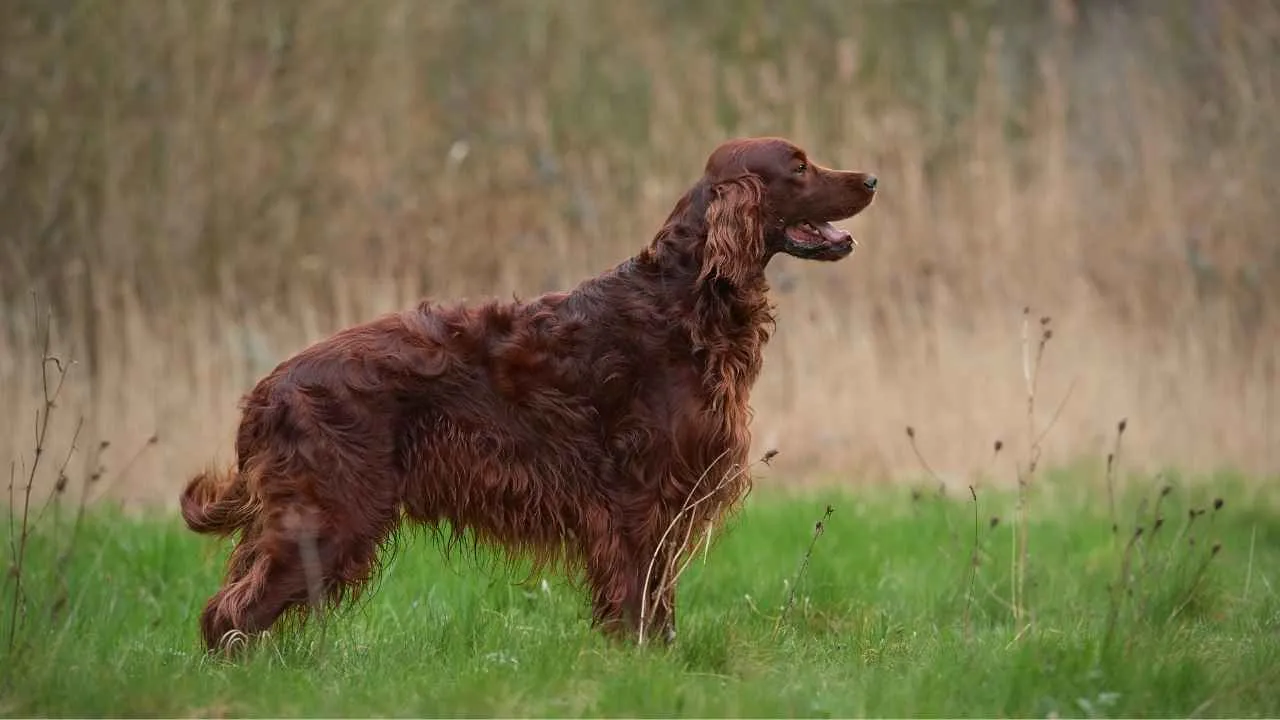
Irish Setters are social butterflies. They love their people and other pets.
Irish Setters are mischievous and playful even as adult dogs.
They are highly trainable with positive reinforcement. However, they easily get distracted.
Irish Setters thrive on affection and interaction.
Irish Setters are alert dogs but are not typically protective.
Unlike Great Danes, Irish Setters thrive in playful and lively home environments.
Energy Levels and Playfulness
Do you want to Netflix and nap with your dog or go on daily marathons? One of these breeds will catch you up in yoga classes while the other dog will wag its tail for another playful session.
Energy matters when choosing a strong. One dog is a strong, friendly companion, while the other is a bright, intelligent, and full of power, that you will have to chase.
Great Dane
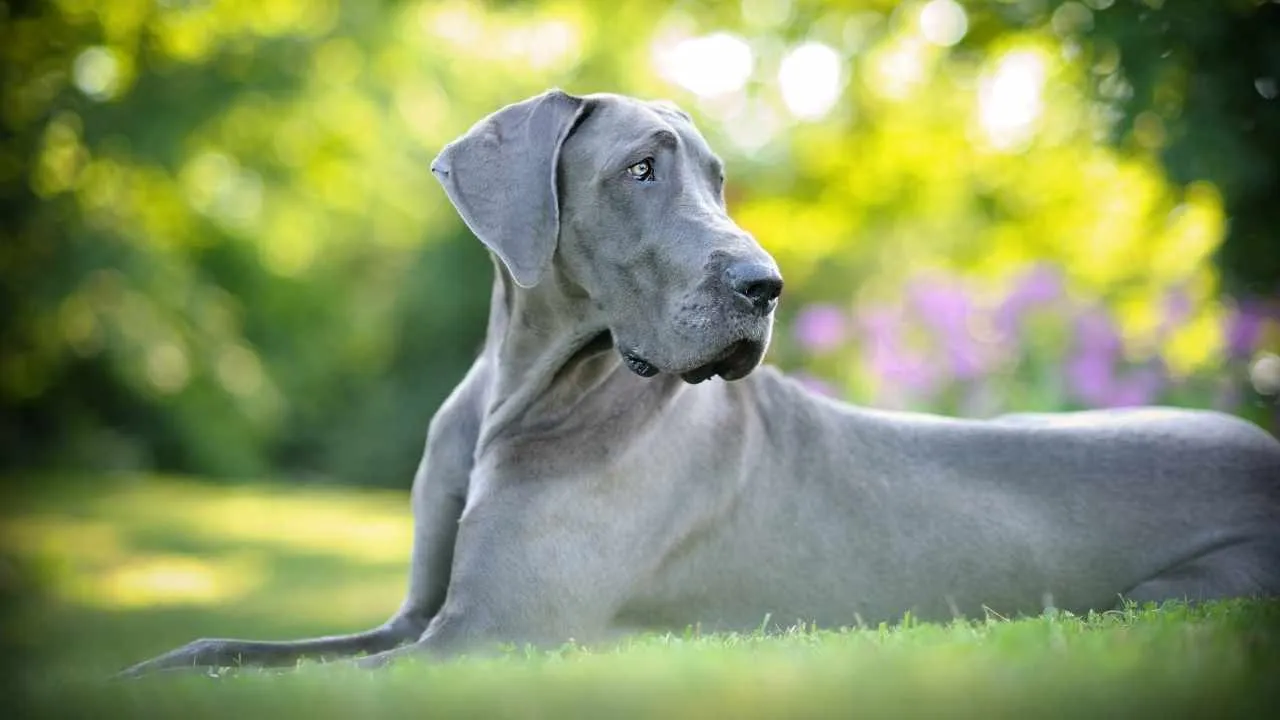
Their energy levels are moderate. Daily walks are enough for their health. They don’t require vigorous exercise.
They enjoy short play sessions.
Great Danes can be lazy indoors and are one of the quietest dogs.
However, they need ample space to stretch.
Great Danes are prone to joint issues, hence, no intense running is recommended.
Irish Setter
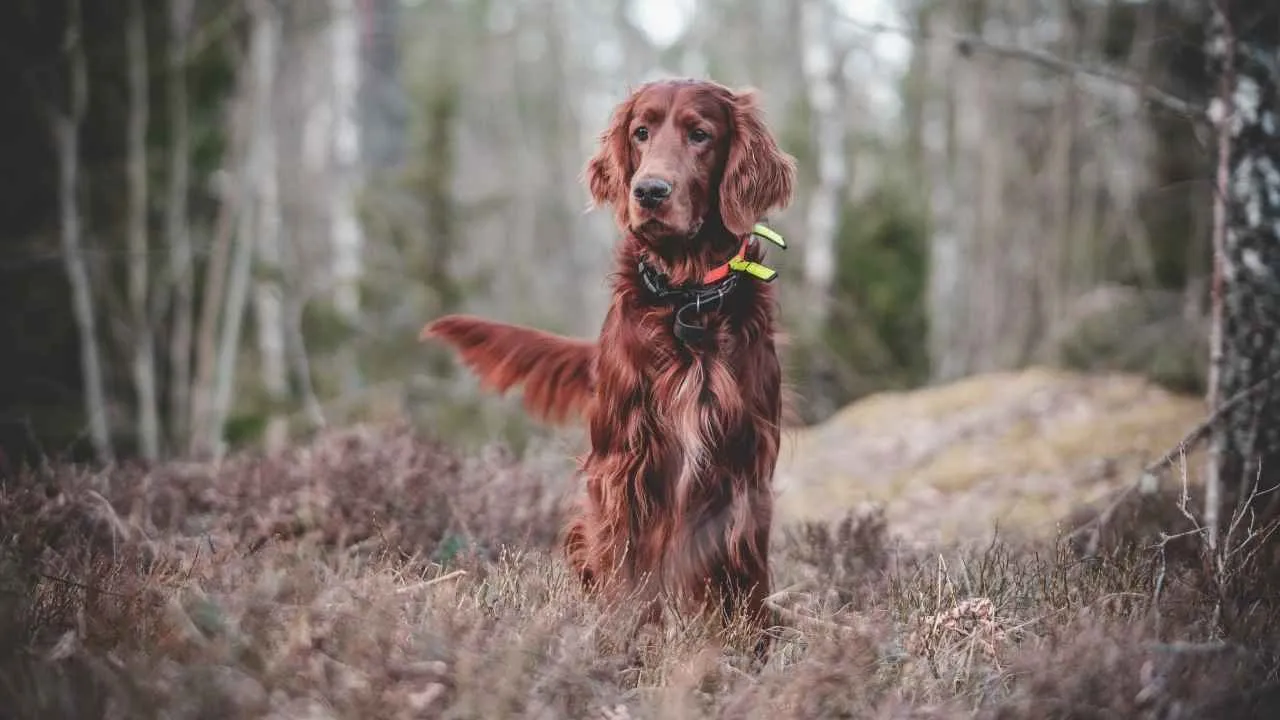
Irish Setters are high-energy dogs. They require at least 1 to 2 hours of exercise daily.
They love running, fetching, and interactive games to keep their intelligent minds happy and content, as per Purina.
Irish Setters perform well in dog sports and agility training.
Irish Setters easily get bored, hence they require mental stimulation.
Adaptability and Independence
Need a dog who adapts like a yoga master or one who needs something to always chase? Whether you live in a tiny apartment or a ranch, one of these dog breeds might thrive; the other may redecorate!
Let’s see how their differences in personality and unique characteristics make them stand out. Let’s see who gets the key to your heart!
Great Dane
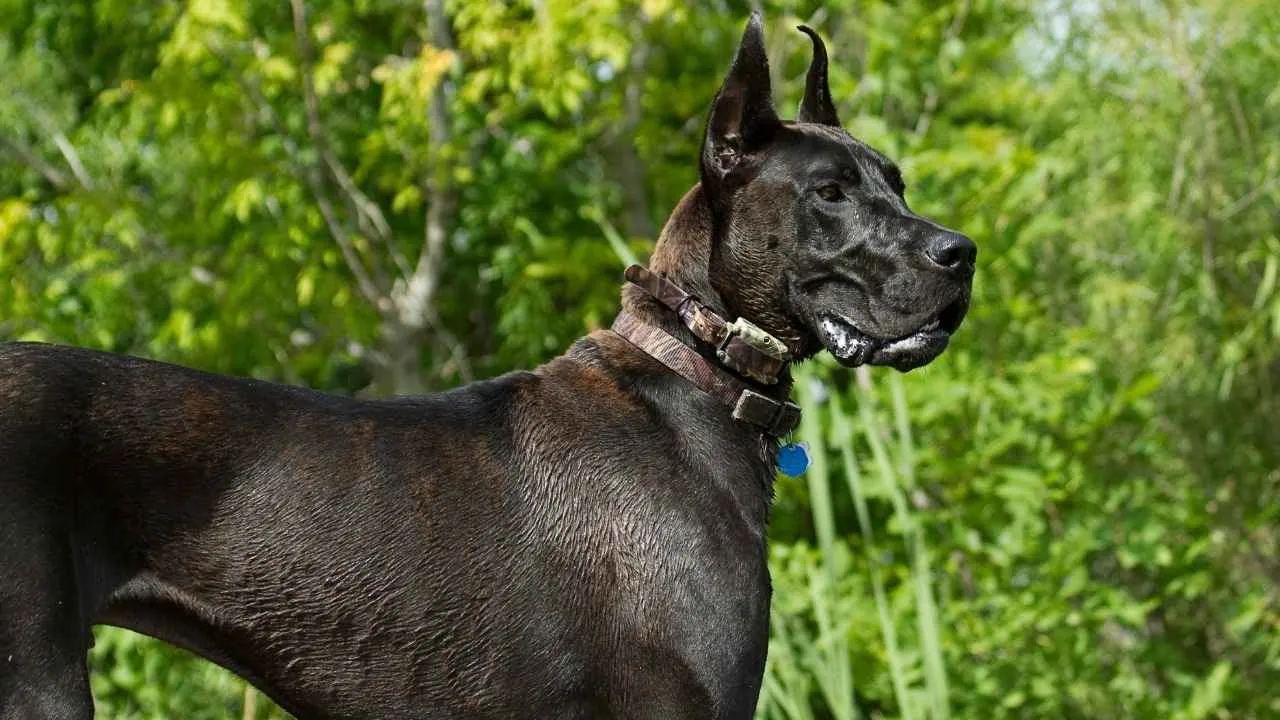
Great Danes, though they require more space, can adapt well to apartment living if exercised properly.
They get attached to their family strongly. They dislike being left alone.
Moreover, Great Danes are sensitive to extreme temperatures.
They require a quiet and stable environment.
Irish Setter
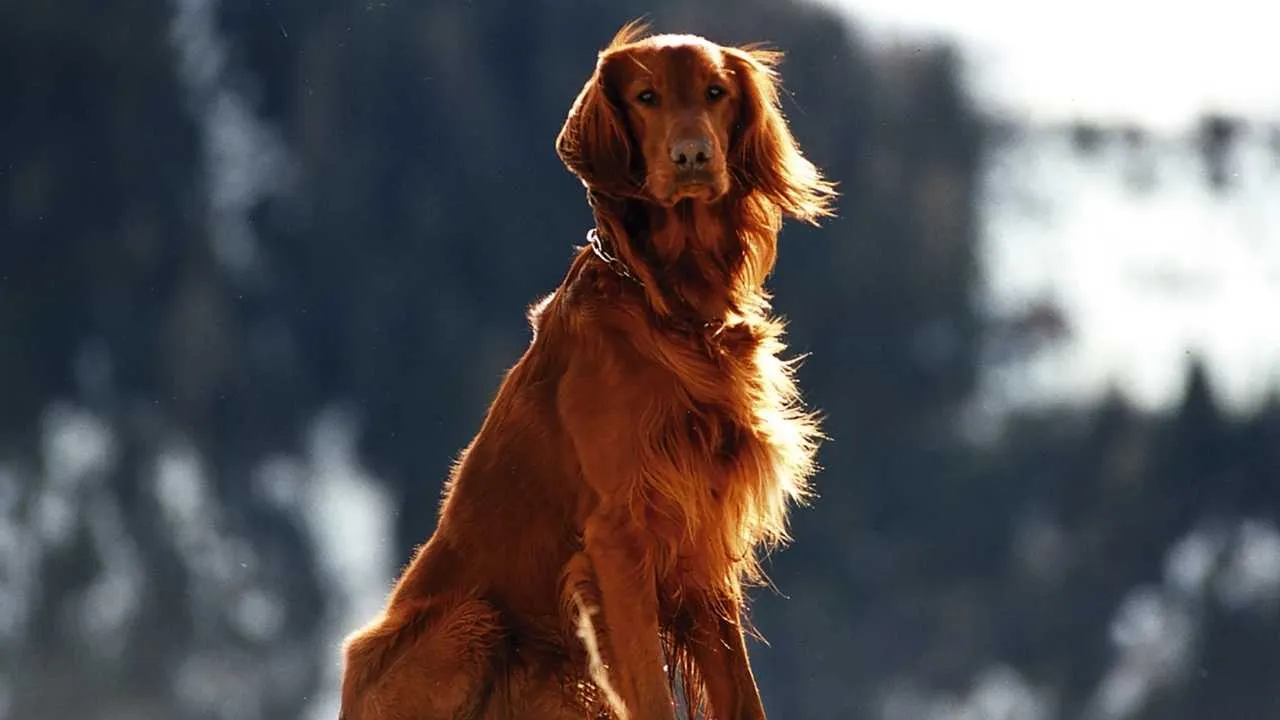
This breed adapts best to homes with space and outdoor access, to vent out their high energy.
Irish Setters can manage alone time if trained early for independent behavior.
They are highly curious and may wander around if not fenced in.
Irish Setters tolerate changes better, but they thrive on structured routines.
Dietary Needs and Weight Control
Feeding a Great Dane? Think small cow portions. An Irish Setter? Picture a marathon runner’s snack time. One is always on the edge of bloating, the other burns calories like fire.
Their diets are just meals, they are maintenance routines to avoid health problems common due to their genetics. Time to find out whose food bill will make you gasp!
Great Dane
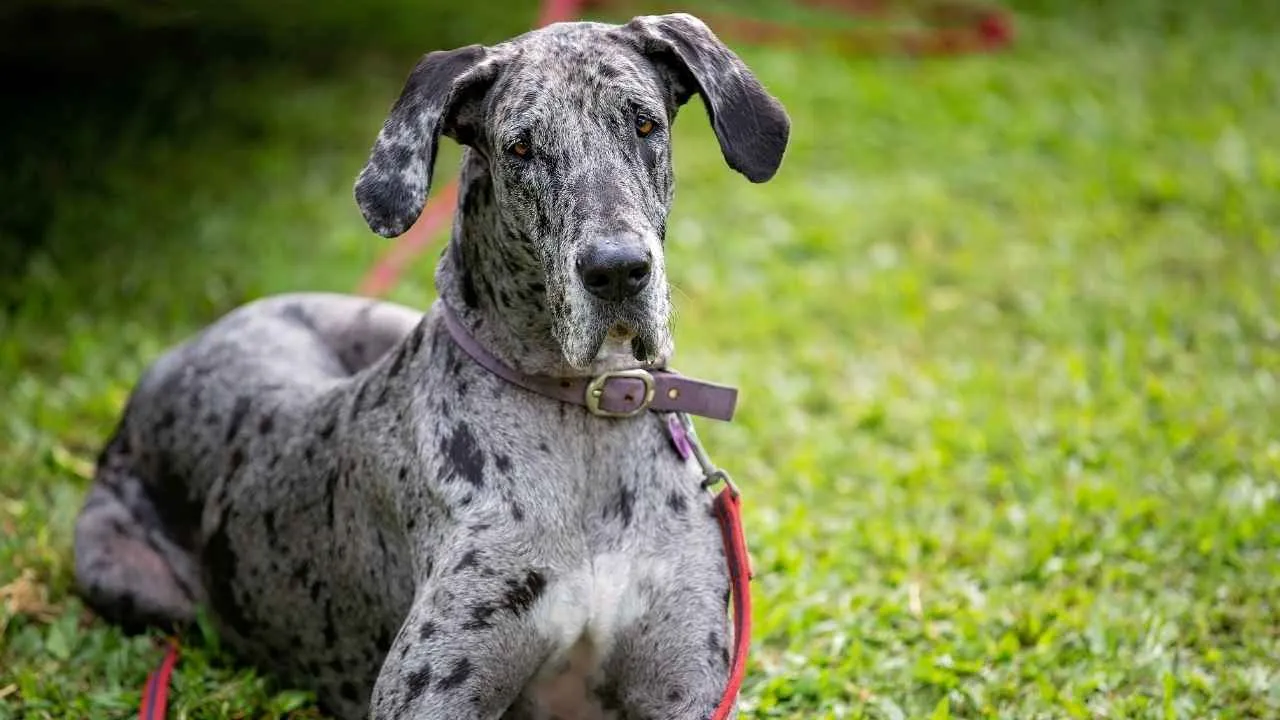
They require a large-breed specific diet.
Moreover, Great Danes are prone to bloating. Hence, meals should be split and slow-fed.
Great Danes require joint-support supplements to avoid arthritis.
They have a high risk of obesity if overfed.
Irish Setter
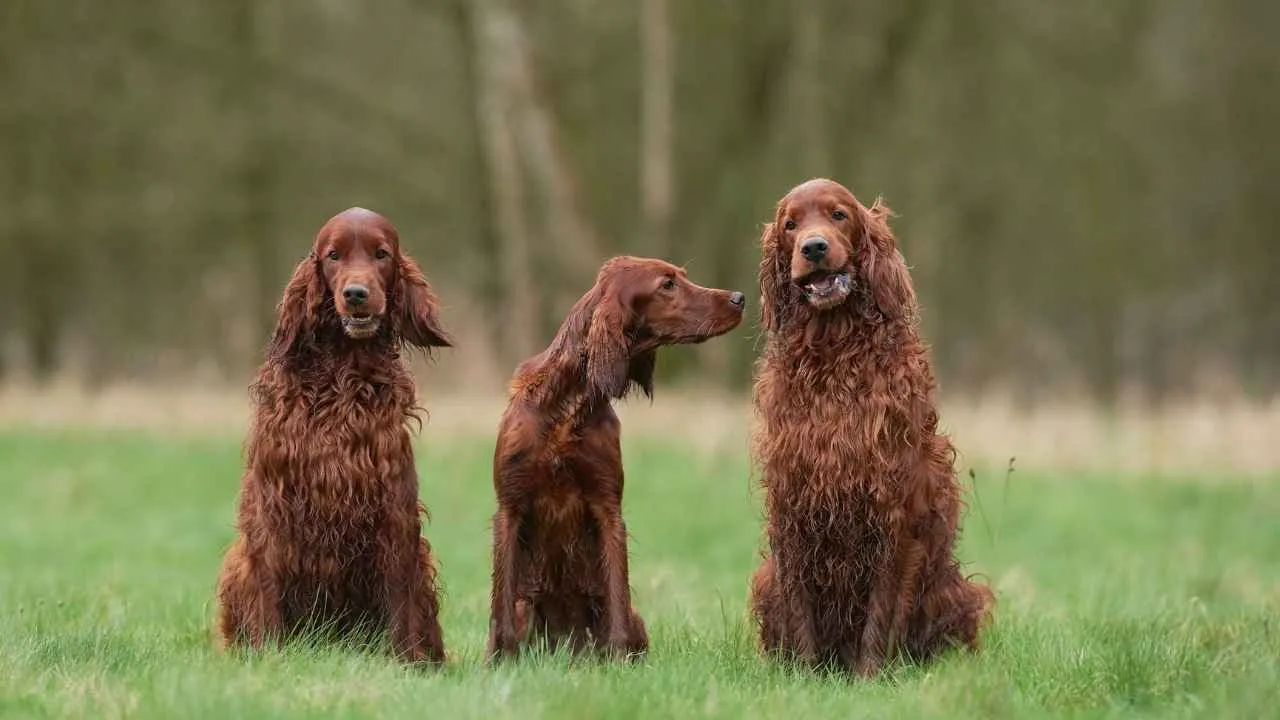
Irish Setters have a high metabolism, hence they need a high-protein diet.
They are less prone to overeating, but portion control is still vital for their health.
Fatty acids like omega-3s are essential for Irish Setters’ coat health.
Irish Setters may need more calories during high activity phases.
Health Conditions and Life Expectancy
Let’s talk doggy doctor visit. Great Danes might break hearts with their shorter lifespans, while Irish Setters won’t leave you early. Health can be expensive, so knowing what you are signing up for may save a lot of stress (and cash).
Great Dane
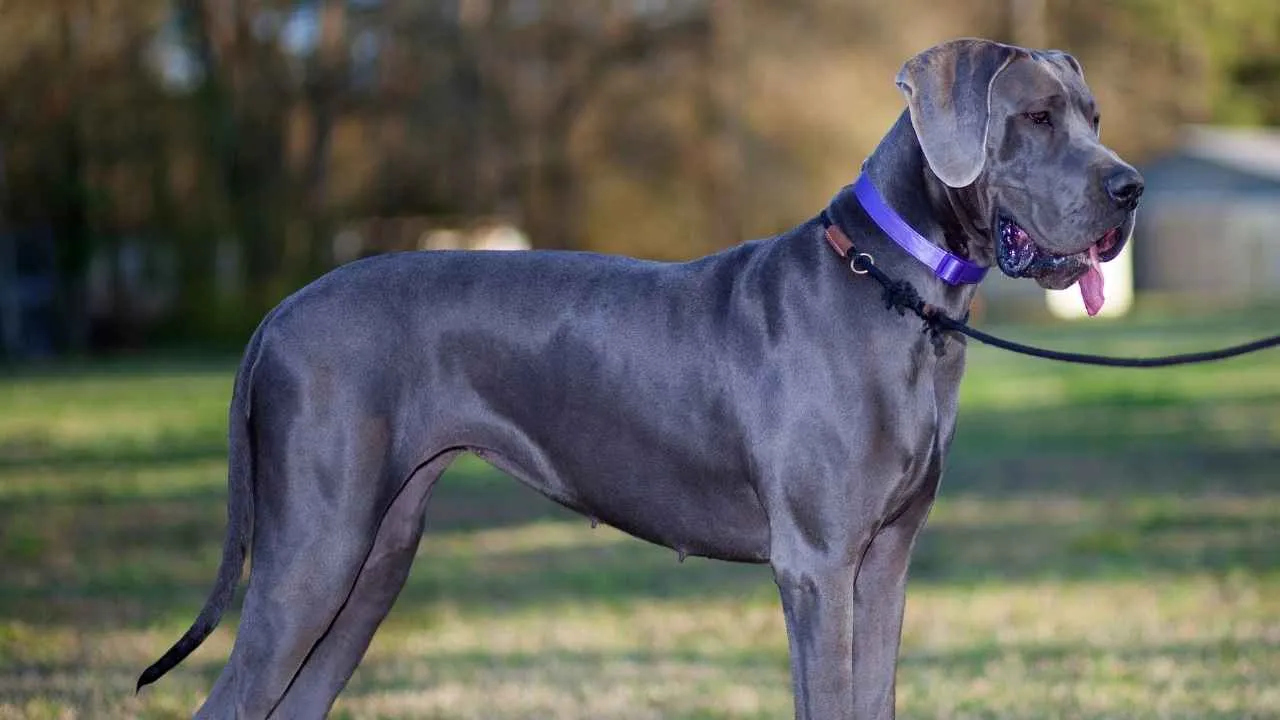
Lifespan: 7 to 10 years
Common Health Issues: Hip Dysplasia, Cardiomyopathy, Bloating, Wobbler disease, Arthritis, Dental problems, Obesity
Great Danes need regular vet check-ups for their joints and heart.
They have a shorter life expectancy due to their large size.
Irish Setter
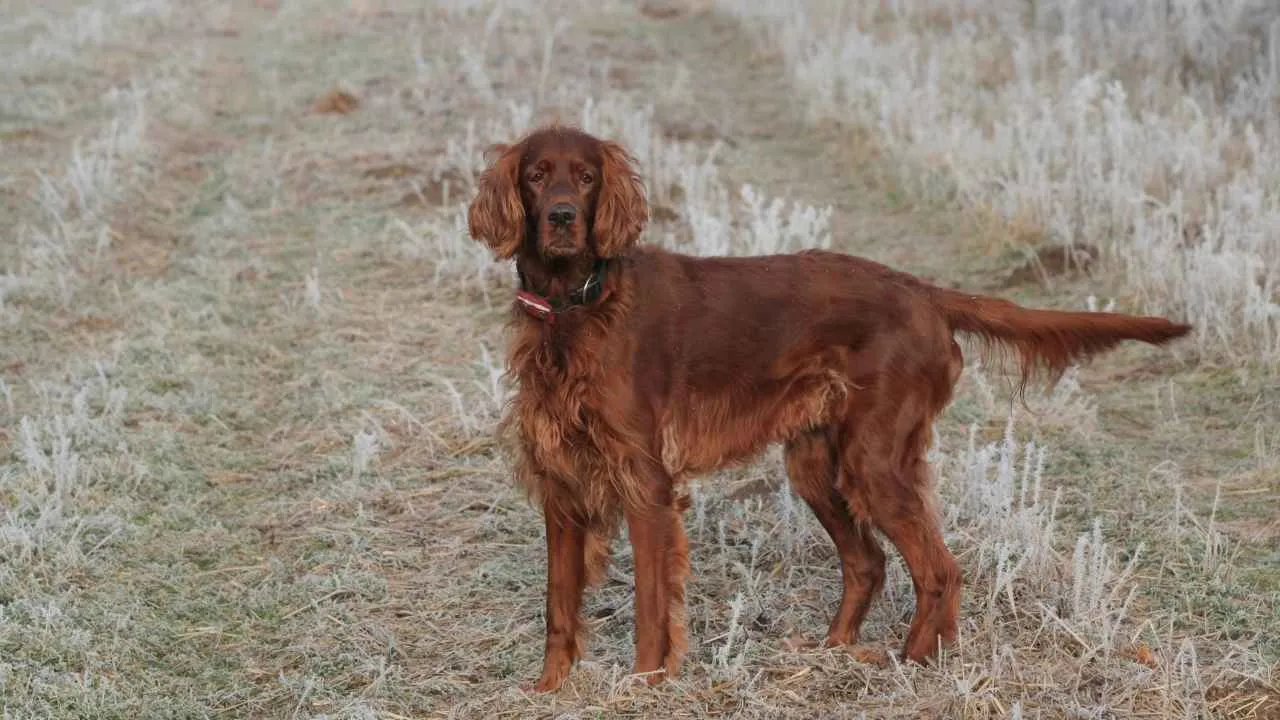
Lifespan: 12 to 15 years
Common Health Issues: Epilepsy, Hypothyroidism, Progressive Retinal Atrophy, Hip Dysplasia, Bloating
Irish Setters require regular eye and thyroid screenings.
They are generally healthier than giant breeds and live longer.
Grooming Needs and Allergy Concerns
Want a low-maintenance dog or a high-glam hairdo? Great Danes are the ‘roll out of bed and go’ type. While Irish Setters basically need a personal stylist.
And if you sneeze at the sight of fur, don’t worry. We are covering what plays nice with your sinuses and your schedule.
Great Dane
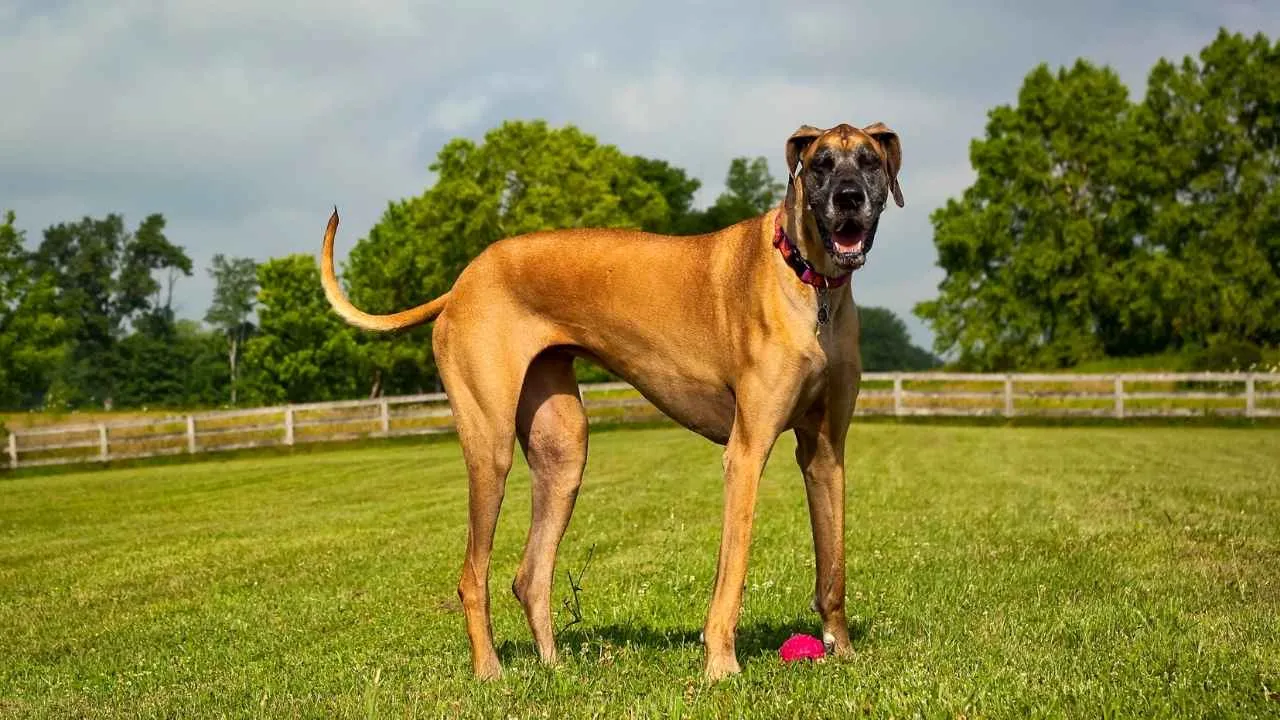
They have a short coat that sheds less.
Great Danes are low-maintenance dogs who require weekly brushing only.
They are low allergen producers.
Bathing is recommended for Great Danes every 6 to 8 weeks.
Irish Setter
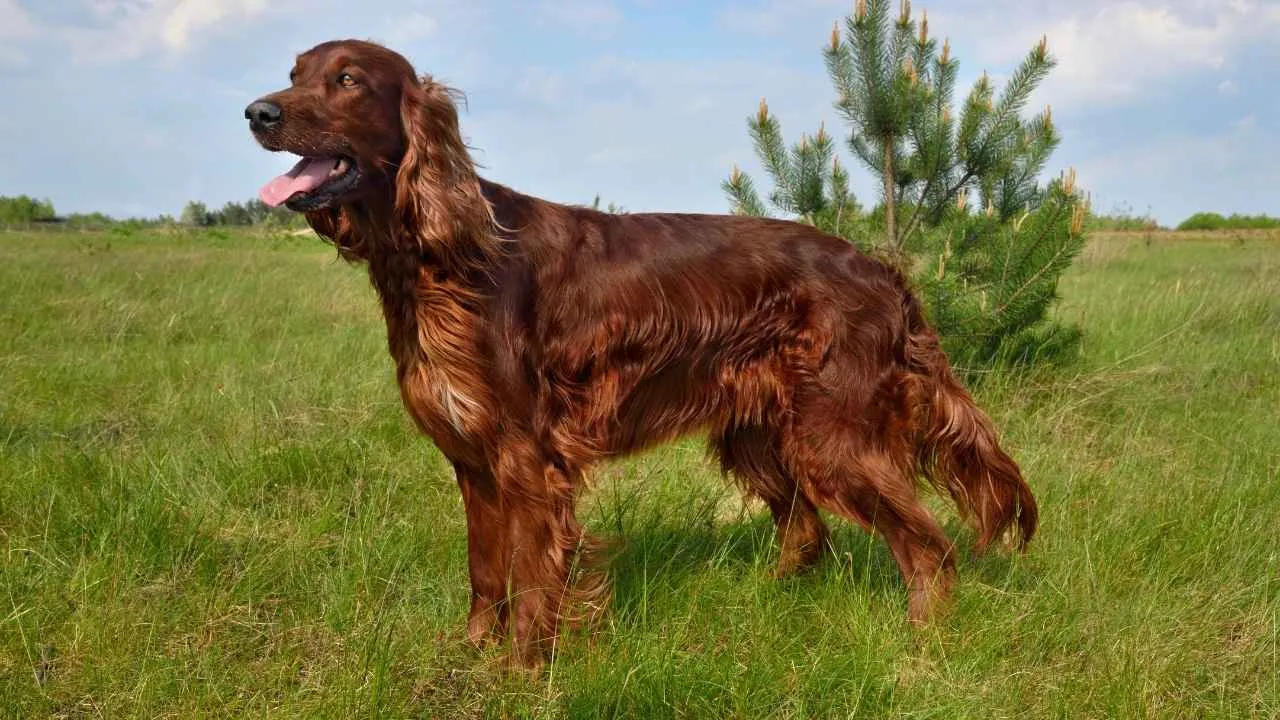
They are low-maintenance dogs due to their long, silky hair.
Irish Setters require brushing 3 to 4 times a week.
Seasonal shedding is common.
Irish Setters have higher allergen potential.
Also, Irish Setters need regular trims, especially around the ears and feet.
Conclusion
Whether you go for the Great Dane’s majestic charm or the Irish Setter’s fiery spirit, everything depends on your lifestyle.
Irish Setters bring non-stop energy and joy to active people, but can be high-maintenance. Great Danes are loyal, gentle protectors that are low-maintenance.
Both are loving and intelligent dog breeds and make unforgettable companions. You just need to see whose energy vibes with yours!


